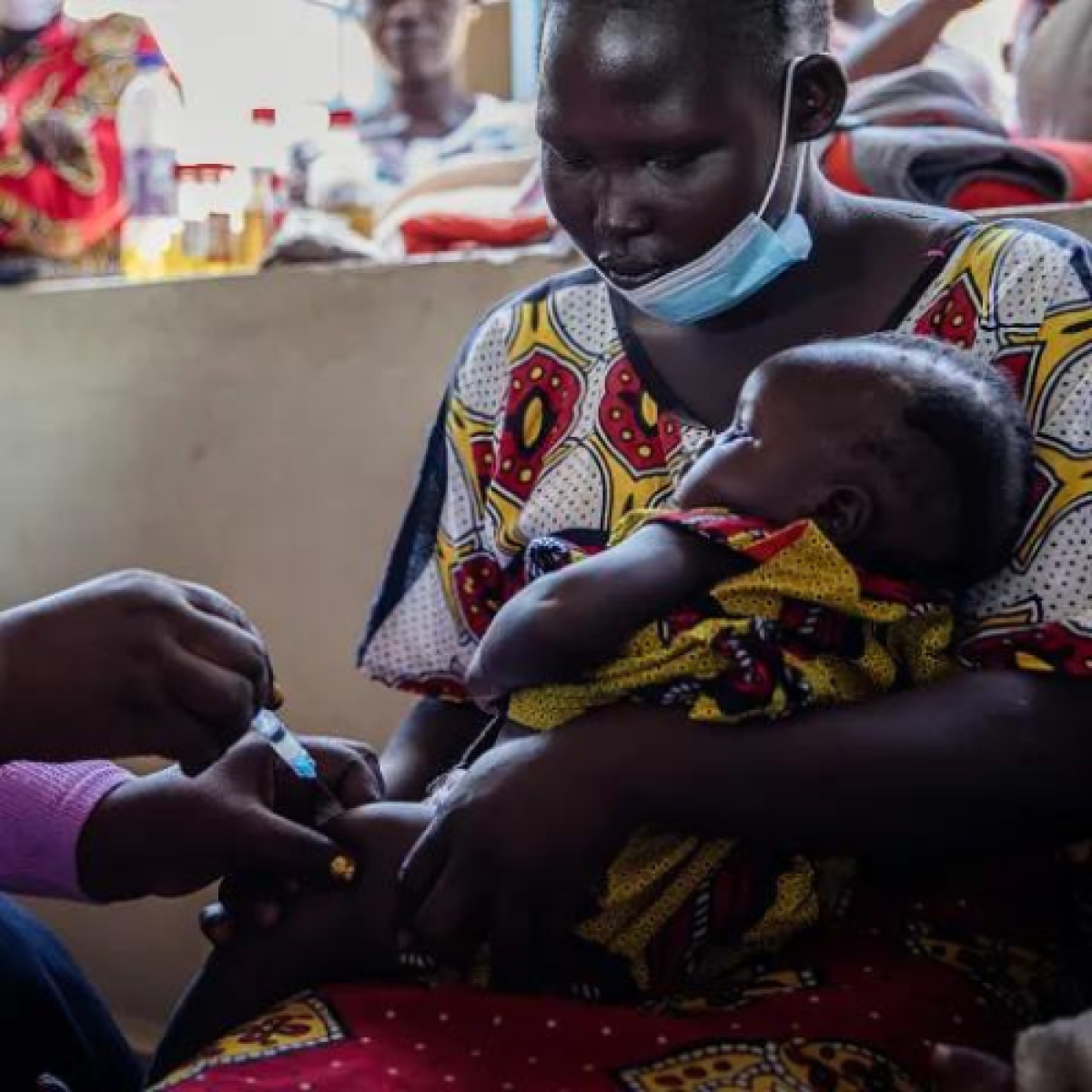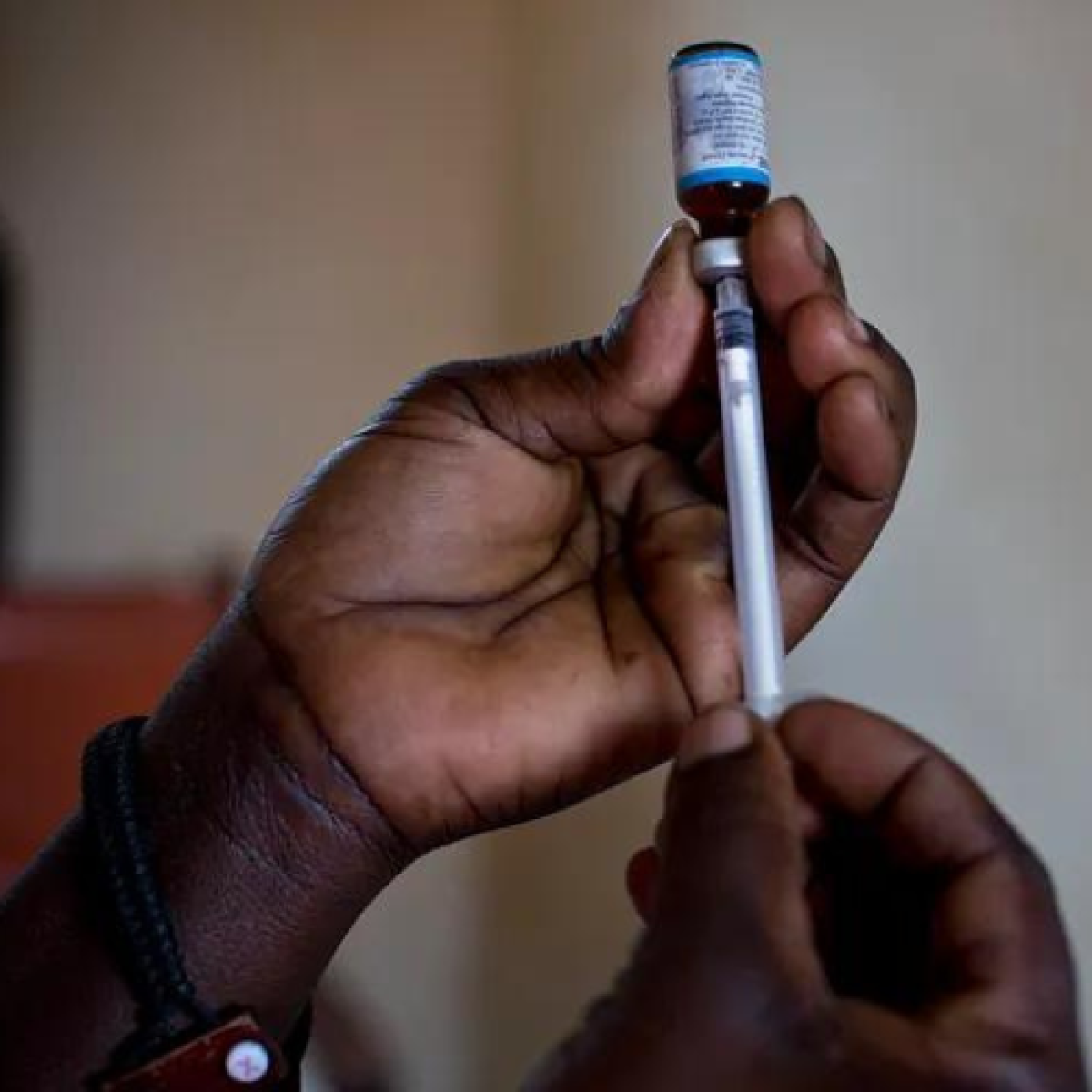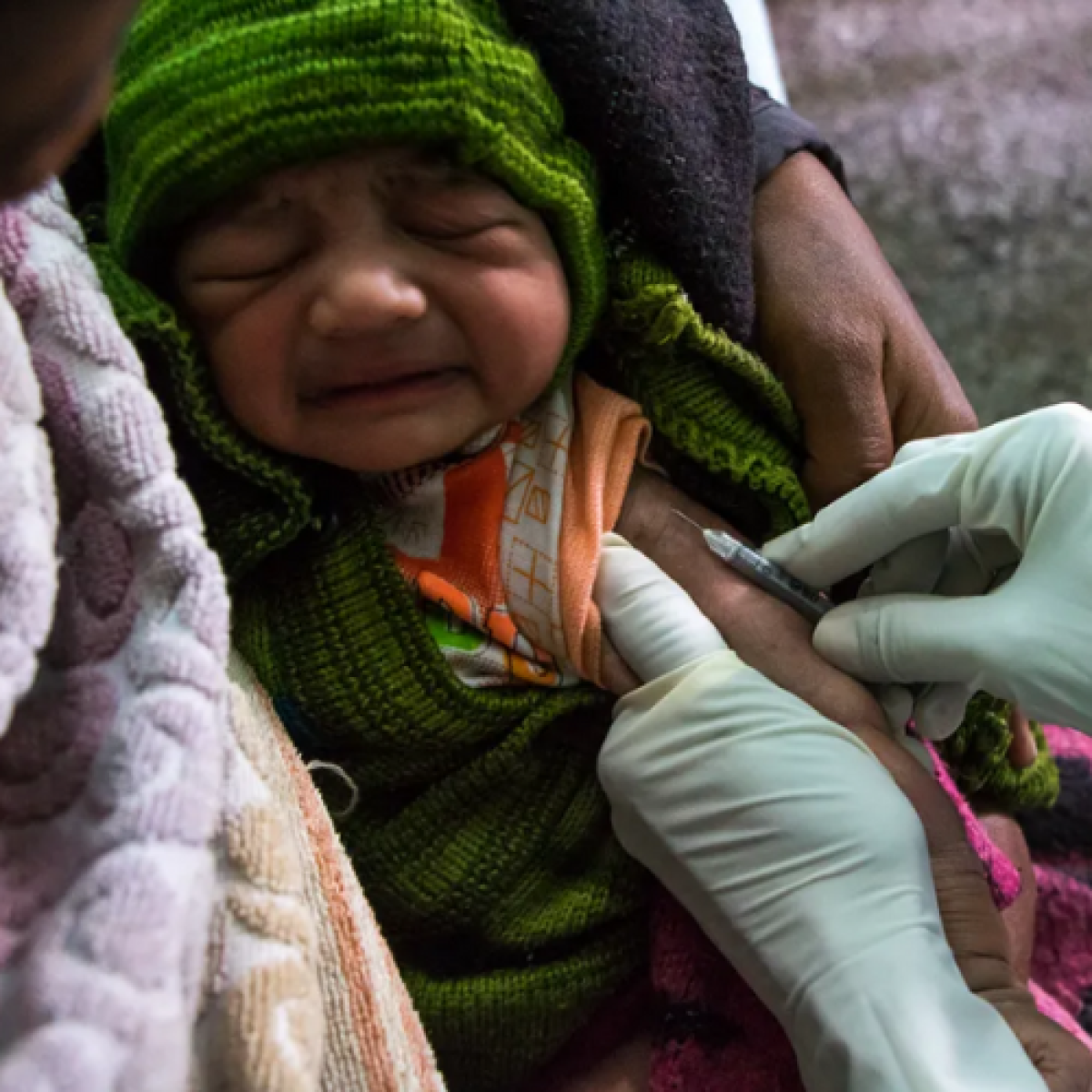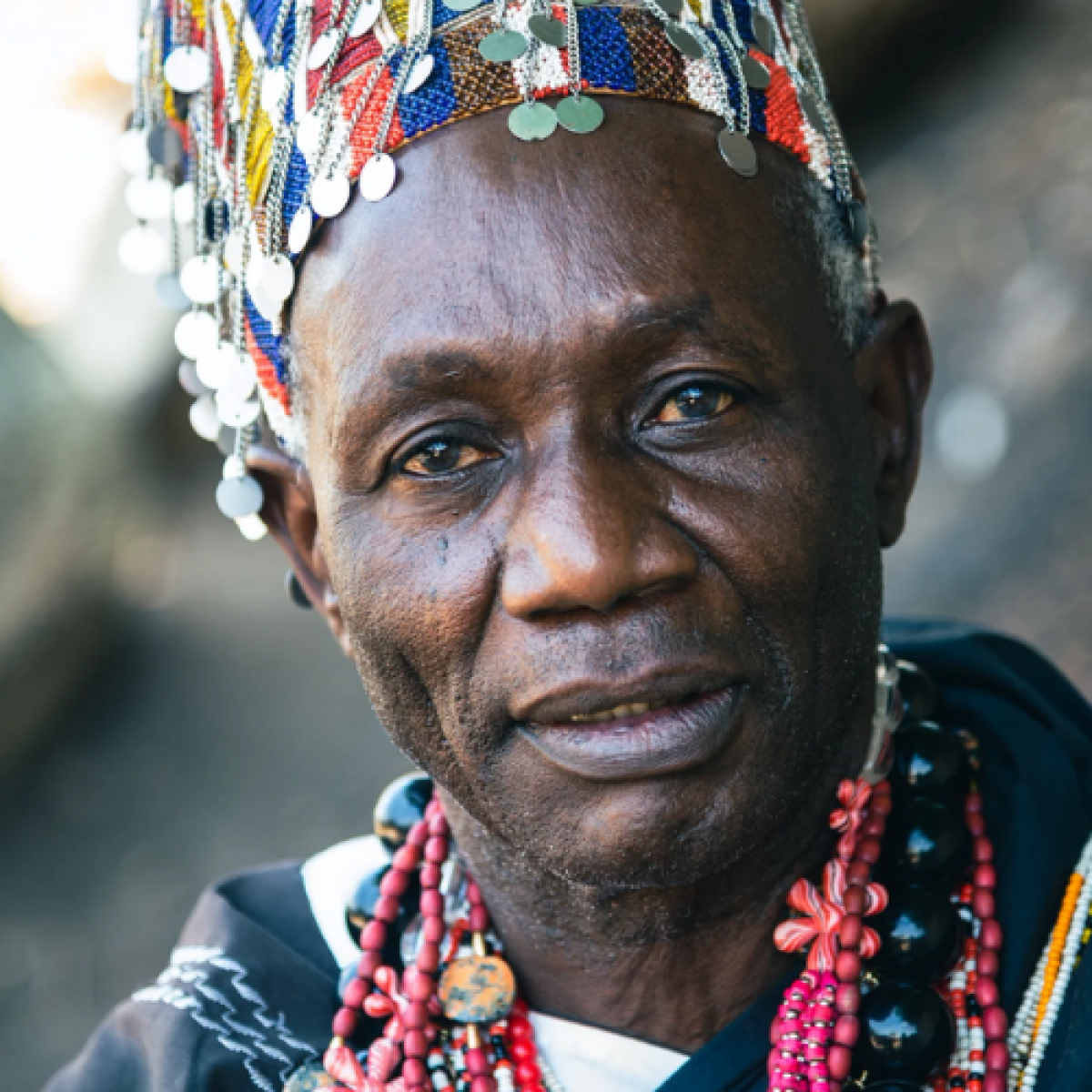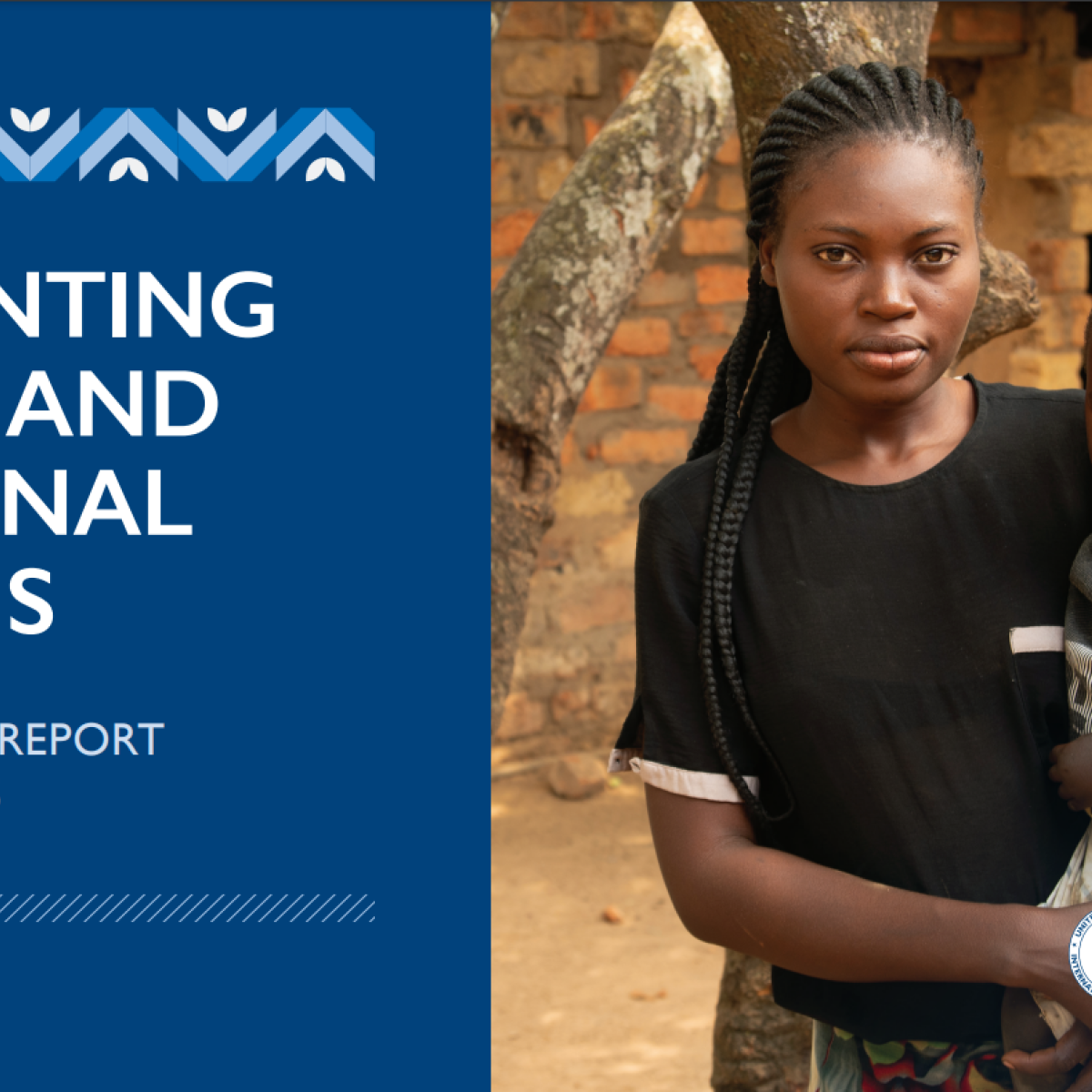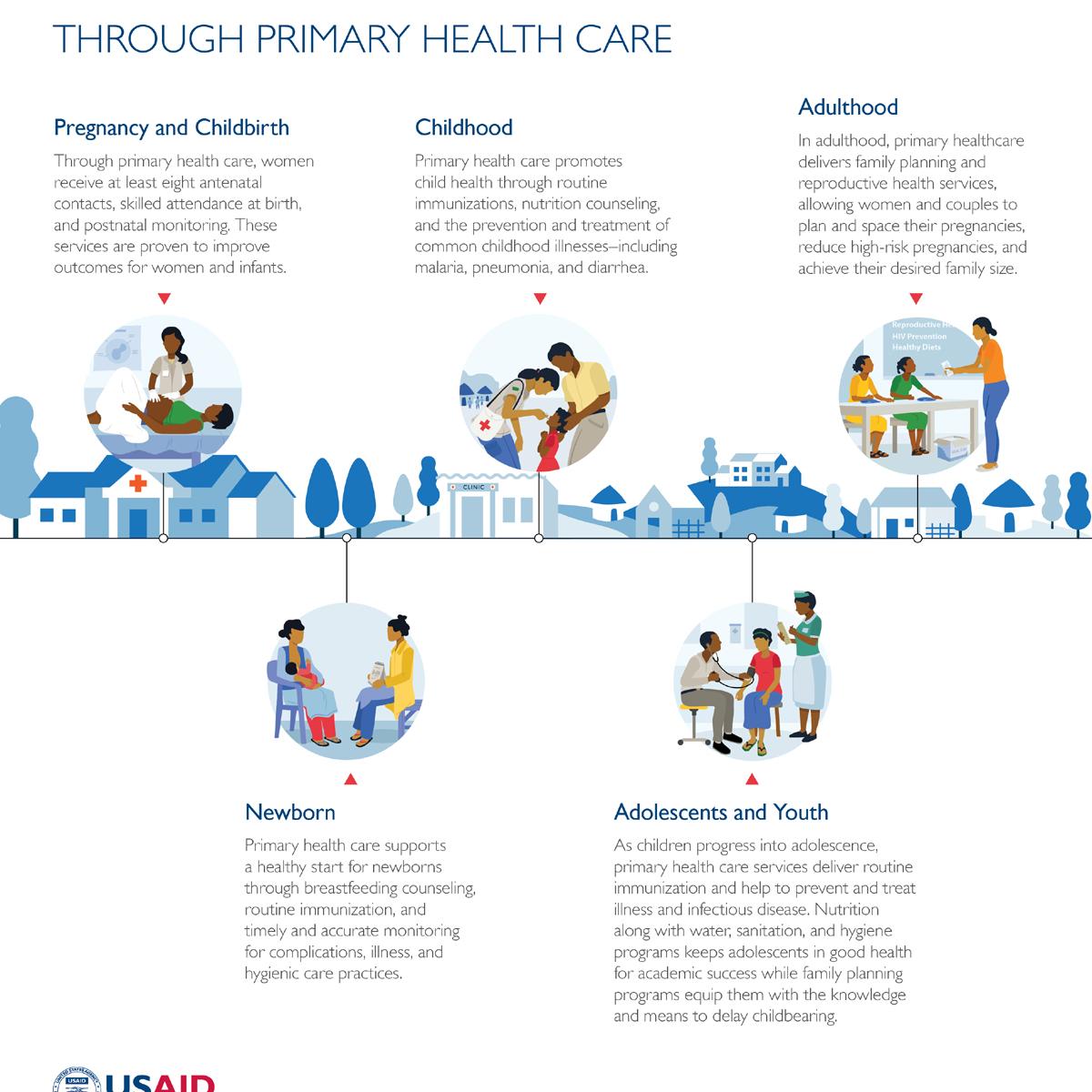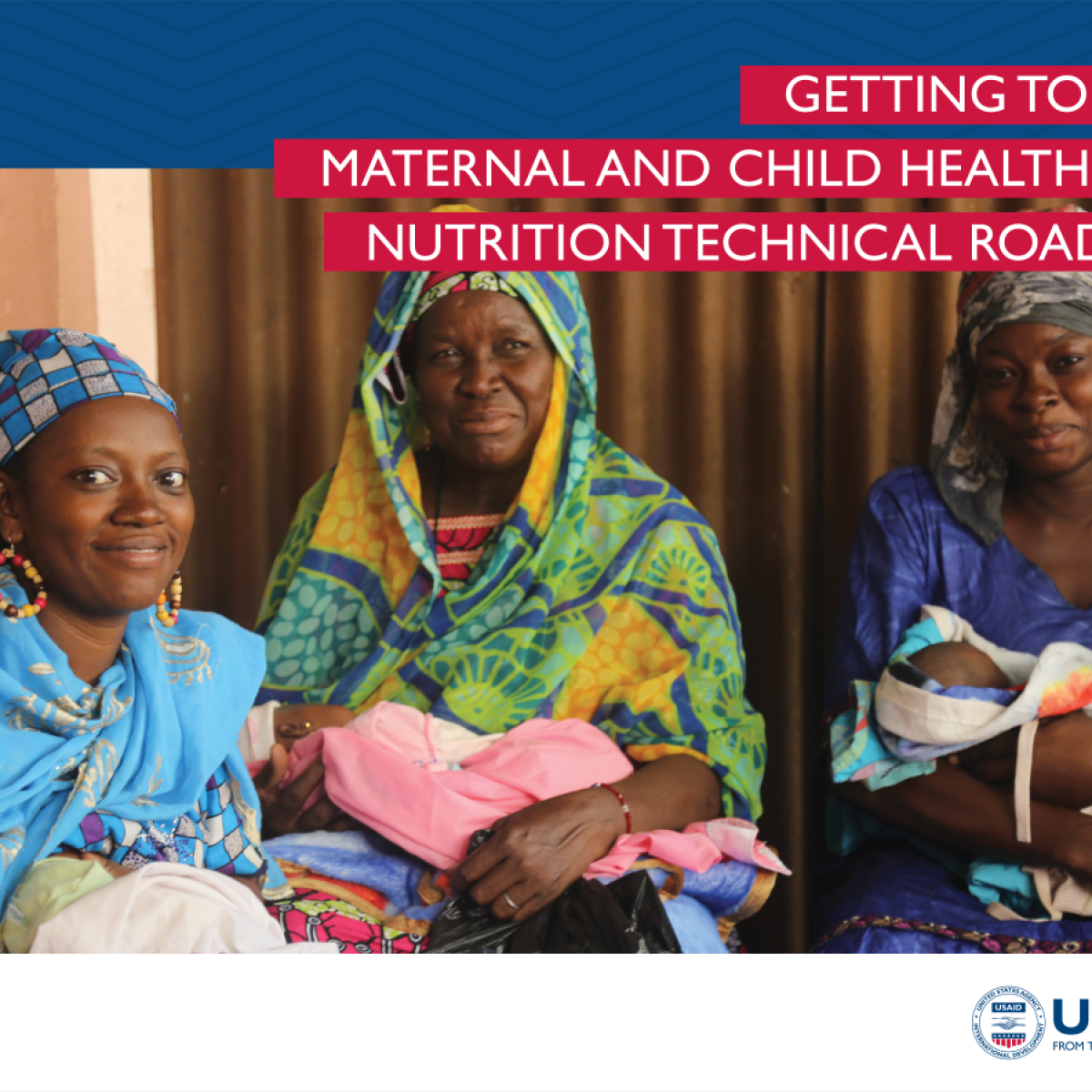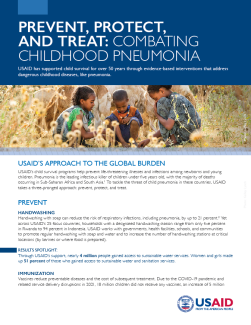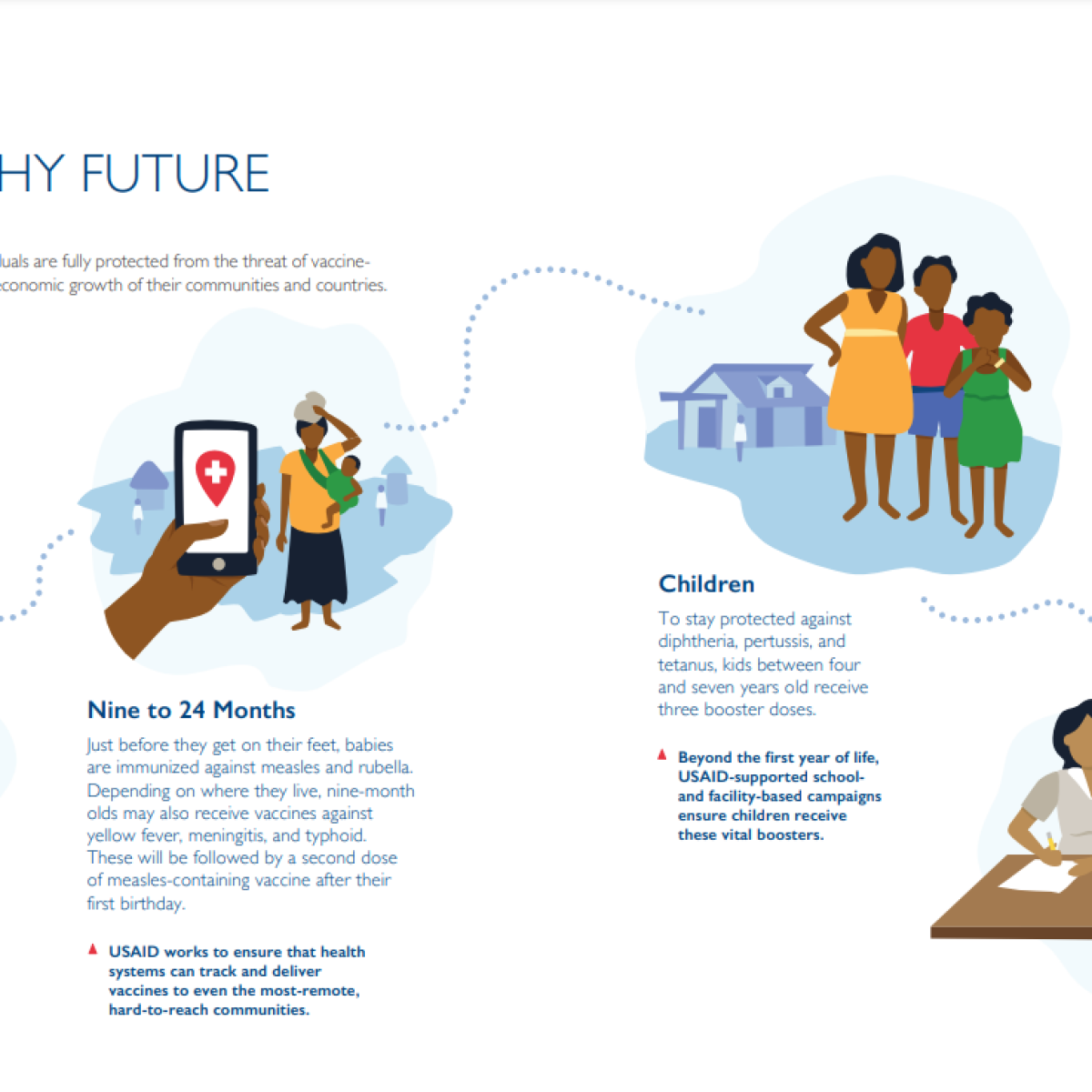Immunization
USAID is committed to advancing equitable immunization to save lives and protect children and communities from outbreaks of vaccine-preventable diseases.
Vaccines are powerful tools for saving lives, stopping the spread of infectious diseases, and helping communities thrive–but not every child has access. In 2021, 25 million children did not receive life saving vaccines. USAID works to eliminate disparities in access to vaccines by strengthening routine immunization systems. We provide countries with assistance and technical support to develop and strengthen immunization policies, strategies, and guidelines to protect children and communities from preventable infectious diseases like measles and polio. When individuals are fully protected from the threat of vaccine-preventable diseases, they can stay in school, care for their families, and contribute to the economic growth of their countries. As routine immunization services reach more families than any other health service globally, strengthening immunization programming can help make overall primary health care systems stronger and more resilient.
Our Approach and Results
USAID saves lives by expanding equitable access to vaccines through the following approaches:
- Supporting the introduction of new and underutilized vaccines through our contribution to Gavi, The Vaccine Alliance.
- Strengthening routine immunization systems to deliver vaccines to hard-to-reach populations to protect children and communities from infectious diseases, like measles and diphtheria.
- Collaborating with global health leaders and coordinating bodies—including Gavi, the Vaccine Alliance; the World Health Organization (WHO); UNICEF; the U.S. Centers for Disease Control and Prevention; and the Bill & Melinda Gates Foundation—to advance global immunization policy priorities.
- Increasing generation and use of evidence and learning to optimize immunization policies, practices and programs.
- Improving polio eradication and disease control initiatives to advance global health security in the fight against new and re-emerging infectious diseases.
Since 2001, USAID has helped immunize more than 981 million children and save more than 16 million lives in partnership with Gavi, the Vaccine Alliance.
Where We Work
USAID’s maternal and child survival programs focus on 25 countries that represent more than 66 percent of maternal and child deaths.
Projects and Partnerships

Global Polio Eradication Initiative
USAID has played a critical role in eradicating polio, providing both financial and technical assistance in support of The Global Polio Eradication Initiative’s global eradication strategy.

Gavi, The Vaccine Alliance
USAID partners with Gavi, The Vaccine Alliance, to provide life-saving vaccines, health system strengthening, and targeted technical assistance across the globe.

MOMENTUM
MOMENTUM—Moving Integrated, Quality Maternal, Newborn, and Child Health and Family Planning and Reproductive Health Services to Scale—is a suite of projects that works in partnership with countries to scale up health interventions and improve the overall health and well-being of mothers, children, families, and communities.

United Nations Children’s Fund (UNICEF)
USAID partners with UNICEF to improve the health and well-being of mothers, children, families, and communities around the world. UNICEF is a key partner for advancing USAID’s global health priorities, including recovering lost ground on the health targets of the Sustainable Development Goals (SDGs).
Success Stories
Featured News and Resources
Subscribe to our mailing list for regular updates
Our quarterly e-newsletter highlights updates on USAID's maternal and child survival programs around the world.


